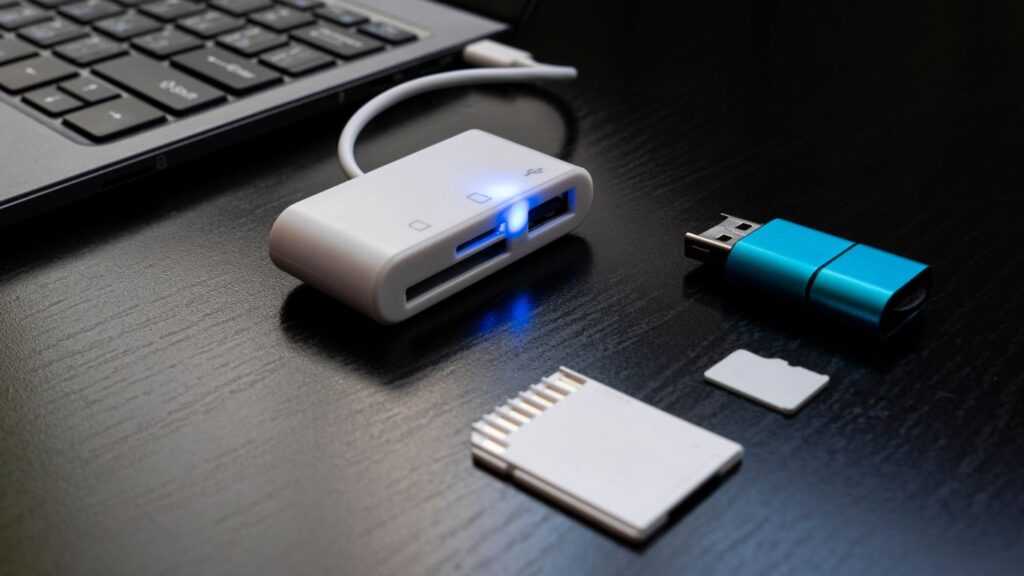When most people think of blockchain, they instantly associate it with cryptocurrency. While digital currencies like Bitcoin and Ethereum have indeed brought blockchain technology into the limelight, its potential stretches far beyond the realm of finance. Blockchain’s decentralized, secure, and transparent nature makes it a game-changer across various industries.
From healthcare to supply chain management, blockchain is revolutionizing how we handle data, ensuring greater trust and efficiency. Imagine a world where medical records are securely shared among healthcare providers or where the journey of a product from manufacturer to consumer is fully traceable. These are just glimpses of what blockchain can achieve. Let’s dive into how this groundbreaking technology is reshaping industries and unlocking new possibilities.
The Evolution of Blockchain Technology
1. From Bitcoin to Broad Applications
Blockchain started with Bitcoin in 2009, establishing the first decentralized cryptocurrency. Satoshi Nakamoto’s innovation aimed to create a secure and transparent digital currency system free from traditional banking. Initially, adoption was slow, but the underpinning technology quickly caught attention beyond cryptocurrency.
For example, Ethereum introduced smart contracts in 2015, enabling automated and self-executing agreements. These contracts expanded blockchain’s utility by allowing decentralized applications (dApps) to operate securely and transparently without intermediaries. Industries began exploring blockchain for tasks like tracking supply chains, verifying identities, and managing digital assets.
2. Key Technological Advancements
Several advancements have propelled blockchain’s adoption across diverse sectors. One significant development is the introduction of consensus algorithms. Proof of Stake (PoS), for instance, consumes less energy compared to Proof of Work (PoW), making blockchain more sustainable and scalable.
Interoperability is another key advancement. Projects such as Polkadot facilitate communication between different blockchains, enabling seamless data transfer and collaboration. This makes blockchain more versatile and integrative for complex industry needs.
Additionally, advancements in privacy features like Zero-Knowledge Proofs (ZKPs) allow transactions to be verified without revealing sensitive information. This is particularly valuable for industries like healthcare and finance, where data privacy is paramount.
Finally, the integration of blockchain with other technologies like IoT (Internet of Things) and AI (Artificial Intelligence) is opening new horizons. For example, blockchain can securely record data from IoT devices, while AI can analyze this data to optimize operations.
These technological advancements, combined with blockchain’s foundational principles, are driving its evolution and expanding its applications across various industries.
Blockchain in Financial Services

Streamlining Payments and Transfers
Blockchain enhances payments and transfers by reducing transaction times and costs. Traditional systems take days to process cross-border transactions. Blockchain allows instantaneous transfers, making financial settlements quicker and cheaper. For instance, Ripple’s network uses blockchain to enable real-time global payments. Eliminating intermediaries also reduces errors and enhances transparency in transactions.
Improving Compliance and Security
Financial services use blockchain to improve compliance and security by providing immutable records of transactions. This ensures audit trails are reliable and tamper-proof. For example, banks utilize blockchain’s transparency to comply with KYC (Know Your Customer) and AML (Anti-Money Laundering) regulations. Blockchain’s cryptographic features also protect against fraud and cybersecurity threats, enhancing overall security in financial operations.
Blockchain Applications in Healthcare
Enhancing Patient Data Security
Blockchain technology significantly improves patient data security. Each block in the chain is encrypted and linked, ensuring tamper-proof storage. For example, Medicalchain leverages blockchain to secure electronic health records (EHRs), allowing only authorized access. Immutable records in blockchain enhance privacy control and reduce unauthorized access. Through decentralized storage, data breaches are minimized, as there’s no central point of failure. Auditable chains provide patients and providers with transparent access logs.
Facilitating Drug Traceability
Blockchain ensures precise drug traceability. By logging each stage of the pharmaceutical supply chain, it prevents counterfeit drugs. For instance, MediLedger uses blockchain to verify the authenticity of drugs, from manufacturer to pharmacy. This traceability helps maintain the integrity of the drug distribution process. Real-time visibility provided by blockchain enhances inventory management and regulatory compliance, reducing the risk of distribution of falsified medications.
Adoption of Blockchain in Supply Chain Management
Increasing Transparency and Efficiency
Blockchain technology vastly improves transparency and efficiency in supply chain management. Traditional supply chains often suffer from a lack of visibility, making it difficult to track products from origin to final destination. By implementing blockchain, each transaction is cryptographically recorded, creating an immutable ledger. Every participant, from manufacturers to retailers, accesses real-time updates along the chain.
For example, IBM’s Food Trust blockchain platform has improved traceability in the food industry by reducing the time needed to trace produce from six days to merely seconds. This kind of transparency mitigates risks like fraud and contamination while streamlining operations.
Reducing Costs and Errors
Blockchain adoption in supply chains reduces costs and errors significantly. With traditional systems, manual processes increase labor costs and the likelihood of human error. Blockchain automates these procedures through smart contracts, which self-execute when conditions are met.
Organizations can reduce intermediary fees, paperwork, and administrative errors. For instance, Maersk’s blockchain platform, TradeLens, decreased documentation costs by streamlining procedures through a shared digital ledger. Lowered operational expenses and reduced error rates lead to more efficient supply chain processes overall.
Innovations in Blockchain for Real Estate
Simplifying Property Transactions
- Simplified Transactions: Blockchain simplifies property transactions by removing intermediaries and automating processes.
- Smart Contracts: Ensure property transactions execute automatically when conditions are met, reducing the need for brokers, agents, and notaries.
- Cost and Time Reduction: According to a Deloitte report, automation can reduce transactional costs by up to 40%.
- Transparent Ledger: Decentralized databases provide a transparent, tamper-proof ledger, ensuring data integrity and reducing fraud risk.
- Real Estate Applications: Companies like Propy leverage blockchain to facilitate real estate transactions.
- Benefits for Buyers and Sellers: Faster closing times and reduced paperwork benefit both buyers and sellers.
Secure Land Registry and Title Transfers
- Secure Land Registry: Blockchain secures land registry and title transfers by providing a decentralized, immutable ledger.
- Tamper-Proof Records: Ownership records stored on the blockchain are tamper-proof, ensuring transparency and preventing fraud.
- Addressing Title Issues: The World Bank cites potential for blockchain to tackle land title issues in developing countries.
- Streamlined Transfers: Automating title transfers with smart contracts streamlines the process.
- Automatic Updates: Titles update automatically upon completion of pre-defined conditions, eliminating manual errors and reducing transfer times.
- Blockchain Solutions: Companies like Ubitquity are developing blockchain solutions for title management, enhancing the reliability and security of property records.
- Industry Transformation: Incorporating blockchain into real estate offers tangible benefits, from cost and time savings to enhanced security and transparency, transforming the industry.
Emerging Trends in Blockchain Usage
Smart Contracts
Smart contracts automate agreements between parties. They self-execute when predefined conditions are met. This reduces the need for intermediaries, cutting costs and speeding up transactions. When parameters are met, the contract actions execute immediately, ensuring trust and reliability.
In the insurance industry, companies use smart contracts to automate claim processing. When an insured event occurs, the system verifies the details and releases the payout without human intervention. This enhances efficiency and reduces fraud.
Supply chain management also benefits from smart contracts. Companies track goods from production to delivery with high accuracy. Each step in the supply chain gets verified, ensuring authenticity and reducing counterfeiting.
Decentralized Autonomous Organizations (DAOs)
DAOs revolutionize business operations by decentralizing decision-making. They function through smart contracts and are governed by their members. This ensures transparency and reduces central control.
Members of a DAO vote on proposals using blockchain-based tokens. This democratic process makes DAOs more efficient and accountable. In venture capital, DAOs allow investors to pool funds, vote on investment options, and share profits transparently.
In the software industry, DAOs manage open-source projects. Developers worldwide contribute, and members vote on updates. This fosters innovation and ensures that project direction aligns with community interests.
These emerging trends in blockchain usage showcase the technology’s versatility and potential to transform various industries. Smart contracts and DAOs are just the beginning, as more sectors discover blockchain’s benefits.
Conclusion
Blockchain technology’s potential extends far beyond its origins in cryptocurrency. Its applications in healthcare, supply chain management, and real estate demonstrate its capacity to enhance security, transparency, and efficiency across various industries. The advent of smart contracts and Decentralized Autonomous Organizations (DAOs) further showcases blockchain’s versatility. As we continue to explore and adopt this technology, it’s clear that blockchain will play a pivotal role in shaping the future of numerous sectors. Embracing these innovations can lead to significant improvements in how we conduct business and manage data, paving the way for a more secure and efficient digital landscape.

 Jasmine Wellish is a key contributor at Info Wave Circle, known for her insightful articles and creative approach to technology and societal issues. With a deep passion for innovation and a knack for storytelling, Jasmine plays a crucial role in communicating the vision and achievements of Info Wave Circle to a broader audience.
Since joining the team, Jasmine has been instrumental in crafting compelling content that highlights the transformative potential of technology. Her work not only informs but also inspires the Info Wave Circle community and beyond. Jasmine’s dedication to exploring new ideas and her ability to convey complex concepts in an engaging manner make her an invaluable asset to the organization’s mission of fostering innovation and societal progress.
Jasmine Wellish is a key contributor at Info Wave Circle, known for her insightful articles and creative approach to technology and societal issues. With a deep passion for innovation and a knack for storytelling, Jasmine plays a crucial role in communicating the vision and achievements of Info Wave Circle to a broader audience.
Since joining the team, Jasmine has been instrumental in crafting compelling content that highlights the transformative potential of technology. Her work not only informs but also inspires the Info Wave Circle community and beyond. Jasmine’s dedication to exploring new ideas and her ability to convey complex concepts in an engaging manner make her an invaluable asset to the organization’s mission of fostering innovation and societal progress.
